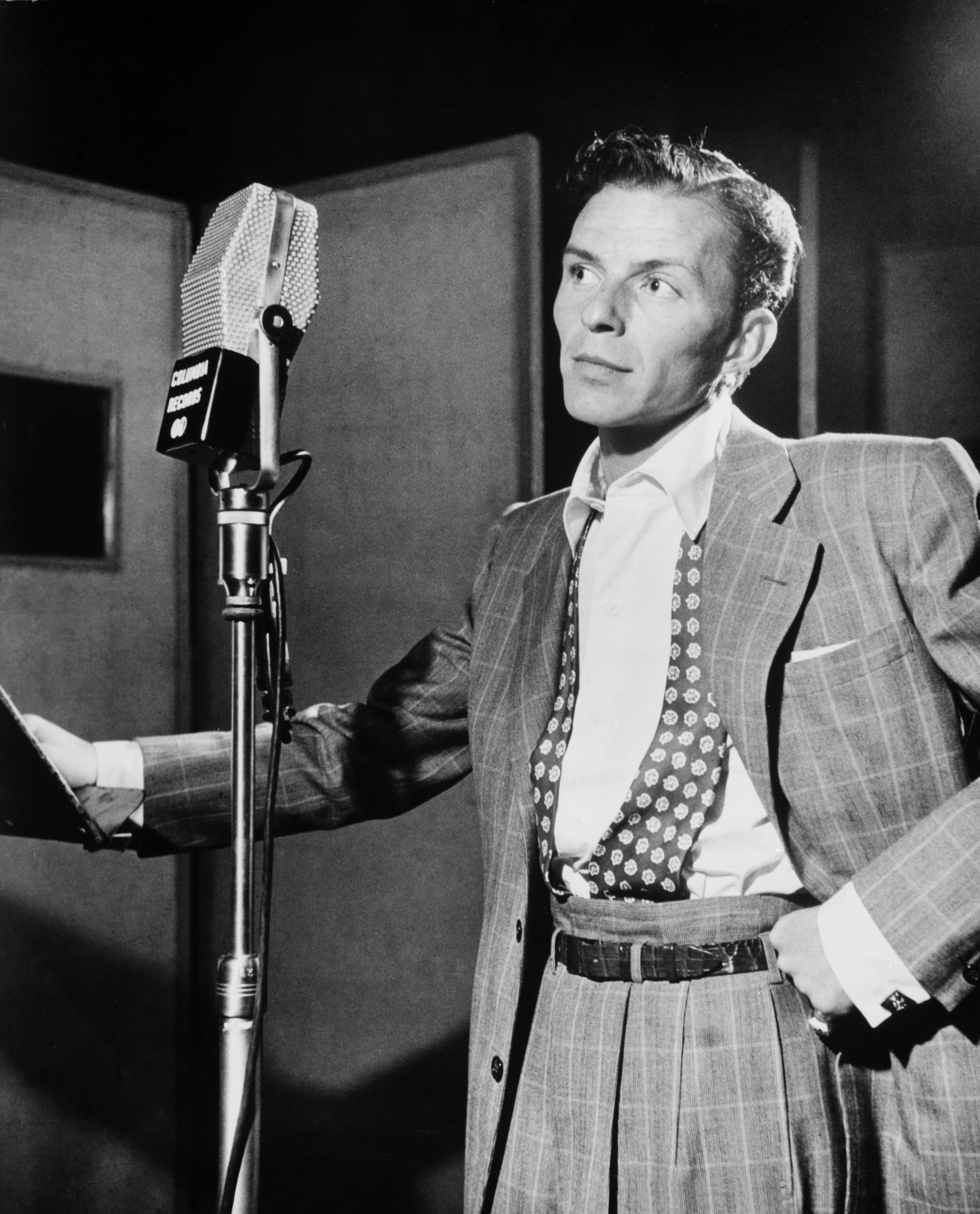
Crooner
A crooner is a singer that performs with a smooth, intimate style that originated in the 1920s. The style was made possible by better microphones which picked up quieter sounds and a wider range of frequencies, allowing the singer to access a more dynamic range. This suggestion of intimacy was supposedly wildly attractive to women, especially younger ones such as teenage girls, known at the time as "bobby soxers". The crooning style developed out of singers who performed with big bands, and reached its height in the 1940s to late 1960s.
For the film, see Crooner (film).Crooning is epitomised by jazz vocalists like Bing Crosby and Frank Sinatra, although Sinatra once said that he did not consider himself or Crosby to be "crooners".[1] Other performers, such as Russ Columbo, also rejected the term.[2]
Country crooners[edit]
Due to the country songs popularized by Bing Crosby, the crooning style of singing became an enduring part of country music.[7] Crosby achieved a million seller with his 1940 rendition of the song "San Antonio Rose", originally recorded by Bob Wills & His Texas Playboys. In 1942, Perry Como had a smash hit with "Deep in the Heart of Texas"; Crosby, who had an enormous influence on Como, covered this song and took it to the number 3 position in the US chart that same year. Eddy Arnold, Jim Reeves and Ray Price are especially well known for their country crooner standards.[8][9][10]
Dean Martin is associated with the country music he recorded in the period when he was working for Reprise Records, whilst his fellow Italian-American crooner Como recorded several albums with country producer Chet Atkins in Nashville. Regular, non-country crooners also scored hits with pop versions of country songs: Tony Bennett had a Billboard number 1 hit in 1951 with his rendition of Hank Williams' "Cold, Cold Heart"; Como had a number 1 hit in 1953 with his version of "Don't Let the Stars Get in Your Eyes", a chart-topping country hit for its author Slim Willet and a number 4 country hit for Ray Price; Guy Mitchell scored a number 1 in 1959 with "Heartaches by the Number", a country hit for Ray Price; and Britain's Engelbert Humperdinck achieved a 1967 UK number 1 hit with "Release Me", another song already made famous by Price in 1954. In 1970, Price had a number 1 US country hit and a number 11 Hot 100 hit with the song "For the Good Times", written by Kris Kristofferson; subsequently, Como's rendition reached number 7 in 1973 on the UK Singles Chart.
Notes
Further reading